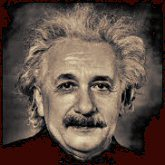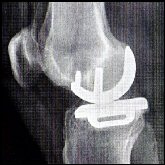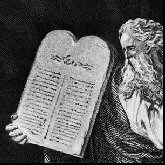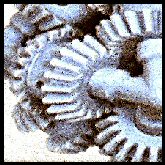 I enjoy Tom Clancy’s novels. I broke out my old paperbacks and now find myself in the middle of the second book.
I enjoy Tom Clancy’s novels. I broke out my old paperbacks and now find myself in the middle of the second book.
In a previous post, I compared plot-driven to character-driven novels. To me, the character-driven novel is the best place to interject suspense. You care about the character—maybe remember that character for life—and the slightest threat of danger raises the suspense level immediately. So few books are written in this hybrid style. It’s what I try to do.
Clancy’s work is primarily plot-driven. But I still read the books. Who doesn’t get a charge out of a terrific story? I may forget most of the characters, but there’s so much material to enjoy. My favorite is Red October.















































































































































































I enjoy Clancy myself, but I would propose that his books are more character driven than you indicate. It seems to me that Clancy’s characters, their interactions with each other and their lives long term are of integral importance to his novels. Jack Ryan is featured in at least nine books, during which we follow his career from a low level intelligence analyst to the president of the United States. If he were a new and random character every time the novels would not be as exciting.
Good point about the repeat and developing characters. That does allow the reader to get involved, especially in Jack Ryan.
I chose Clancy as an example because I like him, because he’s well-known, and because he writes in omniscient voice, jumping in and out of the character’s head. The omniscient style allows the reader to get only so deep into the character. Ryan’s thoughts are “told,” and only occasionally “shown.” It’s a natural limitation of the style, but it opens up other possiblities in the story-telling. I enjoy Clancy’s use of those possibilities. He does it so well.
In contrast, a character-based style (at its extreme) has no exposition at all. Every word is either from the character’s thoughts, actions, or dialogue. That limits what the writer can do, but puts the reader deeply into the character’s head. It allows an emotional bond that’s difficult to achieve in the other style.
I can understand you liking Clancy. My fav of all time. Doesn’t pull any punches.
I don’t understand how you can read all that foul language.
As a Christian, that element of his writing grates at me. On the other hand, Clancy is showing sailors talking like sailors. Some of the jobs I’ve had probably hardened me to the language. Does that make it right? I don’t know the answer. The one character that I wish would clean up his act is Jack Ryan. Seems he’s the foulest mouth and it doesn’t seem to fit him. Thanks for raising the issue.
As a follower of Christ, I personally think my character, actions—and yes even my talk need to be above reproach. Of course that is not to say any of us (myself included) reach Christlike perfection this side of heaven. And I will also add that I do read novels such as those written by Mr. Clancy.
The question becomes do we attempt to insulate ourselves from the real world? Some religious sects feel this is the way to achieve a holy life (monastic movements in years past and groups today such as the Amish are examples). I have heard it explained this way: “It is good for a boat to be in the water, but it is not good for water to be in the boat.” That is to say; a believer is expected to be in the world—but the world should not be in the believer.
This still does not answer the post asking about reading novels with off-color or crude language. I think this becomes a point of personal liberty and discretion. If reading such material draws you towards an unwholesome lifestyle or causes you to speak in an offensive manner, perhaps you should forgo such entertainment. One could ask themselves the same thing about the movies and television he or she watches. As adults, we always have the option of turning off the TV, staying away from the cinema, and not reading certain books. If certain entertainment offends me, I have the responsibility to limit my exposure to such media. And no matter our level of personal freedom, it is always good to do a regular spiritual check-up to make sure our priorities and entertainment choices are not harming our relationship with God.
One could also ask, “Shouldn’t some things just be censored if they have no value to society?” Since that could be another very lengthy debate, I will leave that can of worms unopened.
Thanks. A thoughtful and thought provoking answer.
Well to get to the heart of it, I love the technical details and the feeling of understanding the function of a sub, a cruiser, a spy network–that’s what Clancy brings to the table. Does anybody come close to his detail and research? For those of you who read my manuscript, you’ll see why I like that so much.
In the future, I may highlight some other authors who wrote in series. This has brought up some interesting material.
I don’t believe that you’ve taken into account Clancy’s “Without Remorse.” The novel is truly character-driven. As you say, it’s difficult to draw a reader into a character’s mind using omniscient voice, but in this case, Clancy succeeds masterfully.
The character of John Kelly captures the reader because so much of the prose is devoted to his thoughts and so many events are seen through his eyes. Contrast that to his newer novel, “The Teeth of the Tiger,” which is plot-driven and suffers by comparison. Both plots are based on revenge and therefore deeply troubling from an ethical and spiritual perspective, yet I am haunted by “Remorse” and not by “Tiger.”
The story depicts cruelty and inhumanity and it hurts to read because it is so well done. Certainly one can find more graphically brutal and violent novels, but because the reader identifies with Kelly so deeply, one cannot help but be deeply affected. The effect is not uplifting.
I agree with your thesis. Might I suggest that a popular plot-driven author supporting it more clearly is James Patterson.
My apologies to Mr. Clancy. To make my point, I wanted to use a commercially successful author that ranked among my favorites. I do remember the novel you described and I also find it deeply troubling.
Along with my other reading, I’m working my way through my old Tom Clancy novels, not in the order written, but in the chronology of the development of the characters.
I recently completed my old favorite, Red October. That book is a masterpiece. There’s so much more there than I ever recognized years ago. How did the man ever come up with so much detail? Reading it was like living it.
I have to retract what I said about Clancy’s characters. Yes, his novels are plot driven and yes they’re written in omniscient voice, but he still brings his characters to life in a profound way. That’s amazing.
Critics stuck on purely literary fiction take notice.